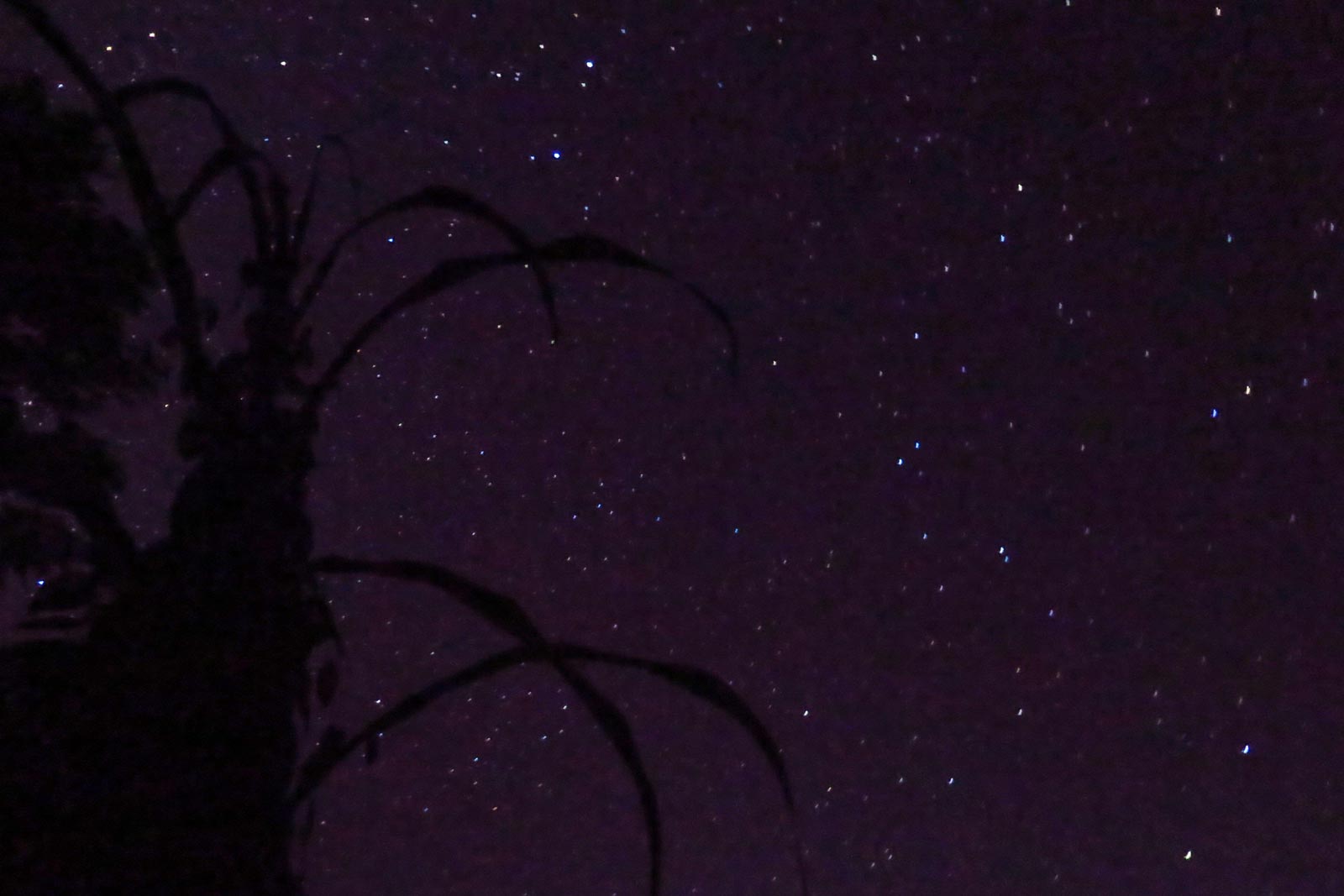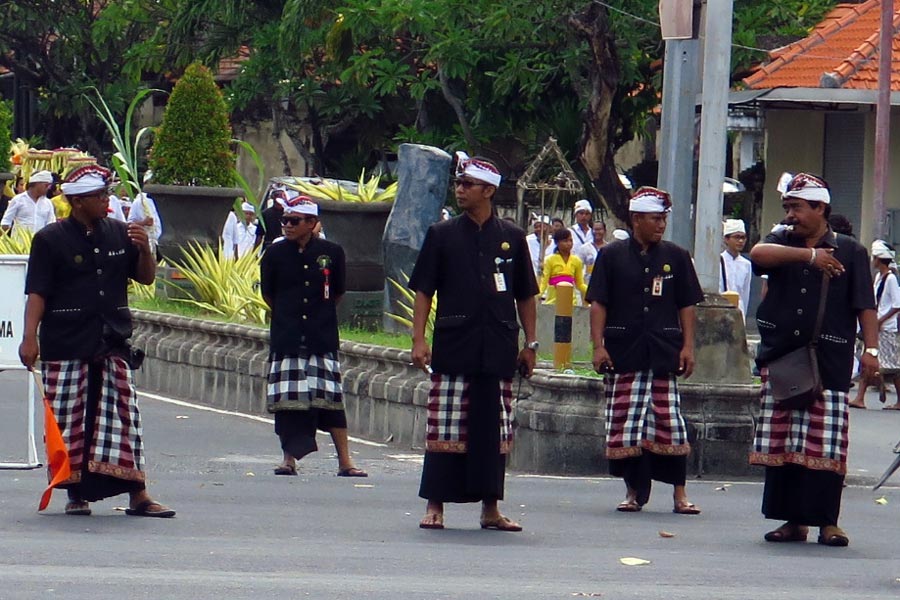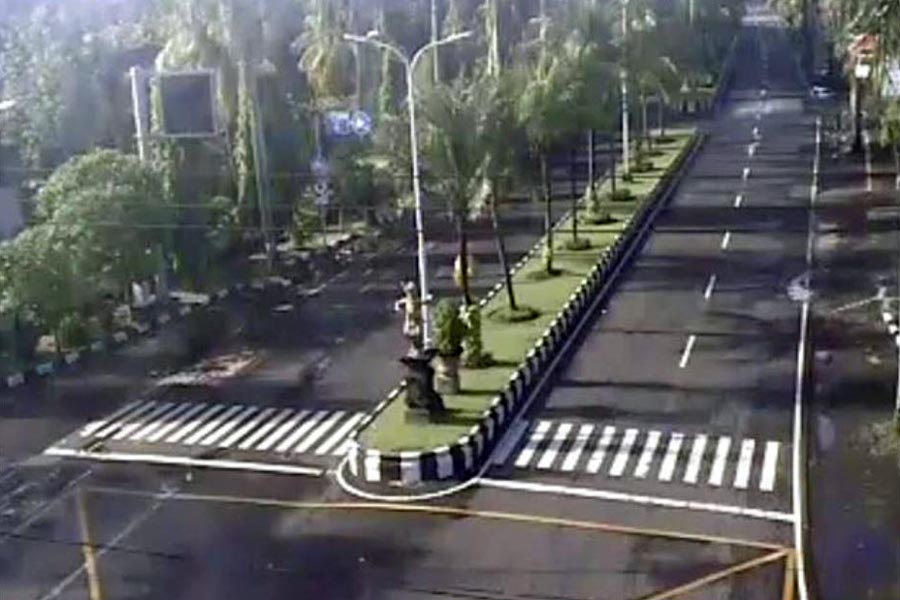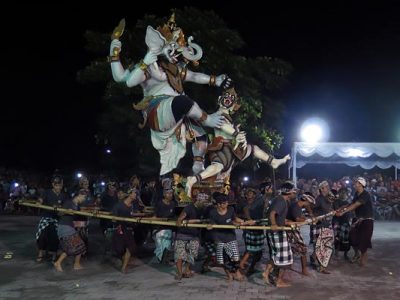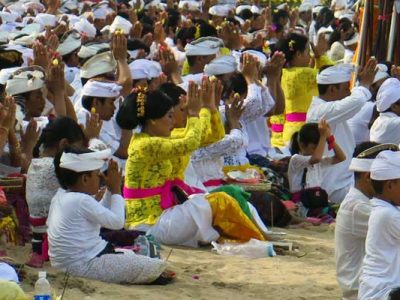Nyepi – The Calm After The Storm (Part 3)
In today’s post we’ll write about the Day of Silence, when the whole Bali island is “shut down” for 24 hours during Hindu New Year celebrations. You can read about cleansing ceremonies and parades to scare away evil spirits, that are held prior to Silent Day from our previous posts.
Nyepi – 24 hours of silence for mind and nature
On the day after ogoh-ogoh parades, Bali will be in complete silence from 6.00 am (besides a few barking dogs, crowing roosters and croaking geckos). The island is “switched off” for 24 hours, until 6.00 am the next morning.
The silence has many meanings and purposes. Firstly, it’s time for introspection – to think about one’s life and values and connect with the God. Another reason behind Nyepi is keeping balance with nature – to let it rest from all human activity. Mankind living on the Earth is compared to an infant in mother’s womb, who feeds and gets energy from its surrounding environment. Silent Day is to give the world and nature a break for a day.
We’ve also heard legends that the 24-hour silence is kept in order to hide from the evil. When all the evil spirits are scared away and confused with ogoh-ogoh parades on Nyepi’s Eve, they’ll be tricked into thinking that Bali is an uninhabited island and they won’t see a reason to stop here.
The rules of Silence Day (catur brata)
There are some rules that must be followed out of respect, if you’re staying in Bali during Nyepi. These apply to all people, despite one’s religion or nationality.
- Amati Lelunganan – no travelling nor movement. You’re not allowed to go on streets and the airport is closed, but for example ambulance is still allowed to provide help. You may enjoy the silence in your own garden, but you can’t leave your territory. Thus, you’re usually allowed to wander around your hotel premises.
- Amati Karya – no working nor activity. From household chores to commercial activity. For example, all restaurants and warungs are closed, all sales activity is prohibited and it’s not possible to check-in or check-out of hotels.
- Amati Geni – no lights nor fire. Hand in hand with the previous restriction, this will rule out cooking for most Balinese families. Enough food is usually prepared a few days before Nyepi. In the evening, curtains are drawn to prevent any light from being seen from the outside. Families with small kids are usually allowed to keep one light on, but they must get a permission from their village chief first.
Good to know: some areas or smaller islands near Bali might shut down their whole power grid. For example, it’s done in Nusa Penida. When you’re planning your trip during Nyepi, ask about your hotel’s rules during Nyepi. Especially, if you’re traveling with small kids. - Amati Lelanguan – no entertainment (incl. love action). Local TV channels aren’t broadcasted, music and movie volumes must be turned close to zero, you must speak quietly or even whisper etc.
Next year you might not be able to also see international channels and use internet anywhere, as new regulations might be enforced by then. Also, posting and taking pictures in public places on Nyepi’s day is prohibited and punishable, so take it easy with your camera.
Traditional Balinese security men (pecalang) will ensure, that the rules are obeyed and silence isn’t disturbed during Nyepi. You can get fined, if you don’t follow the rules. Each village or community will set their own fines. For example, in our area they were around 25 € this year.
Ngembak Geni – starting new year with a clean slate
After 24 hours of silence, Bali will wake up again. On the first day of the new year, people are visiting friends and family to ask each other for forgiveness and forgive any past mistakes.
There’s also a unique omed-omedan festival held in Kaja Sesetan neighborhood, where youth takes part in kissing ritual. Only neighborhood’s youngsters (up to 30 years old) can take part in kissing. Boys and girls are lined up on the opposite sides of the road (Jl. Raya Sesetan) and after a signal boys will rush to pull and kiss girls. Other residents and spectator are pouring and splashing them with water. Besides the kissing ritual, you can enjoy food, shopping and music during the one day festival. If you’re heading to the kissing rally, learn from the locals – cover your camera with a plastic bag.
Unfortunately, we couldn’t make it to omed-omedan festival, but you can look photos of dripping wet kissers here.
All will repeat next year…
And that’s the end of almost a week long Hindu New Year Celebration in Bali. It’s definitely one of the most unique ways in the world to celebrate New Year. If you’re planning a trip to Bali around March or April, take a look at the calendar and you might be able to experience these special events. Next year, Nyepi will be on the 17th of March (2018). As a reference, you can check the general rundown of main celebration dates from our first Balinese New Year celebration post.
We hope you enjoyed our blog post series about Nyepi and discovered something new and surprising about Balinese mystical beliefs and traditions. If you’d like to keep an eye on our travel photos, posts and offers, come and join us on Facebook and Instagram. Spice up your trip to Indonesia by wording up with Indonesian Language Cards 🙂
Word Up and Hit The Road!

